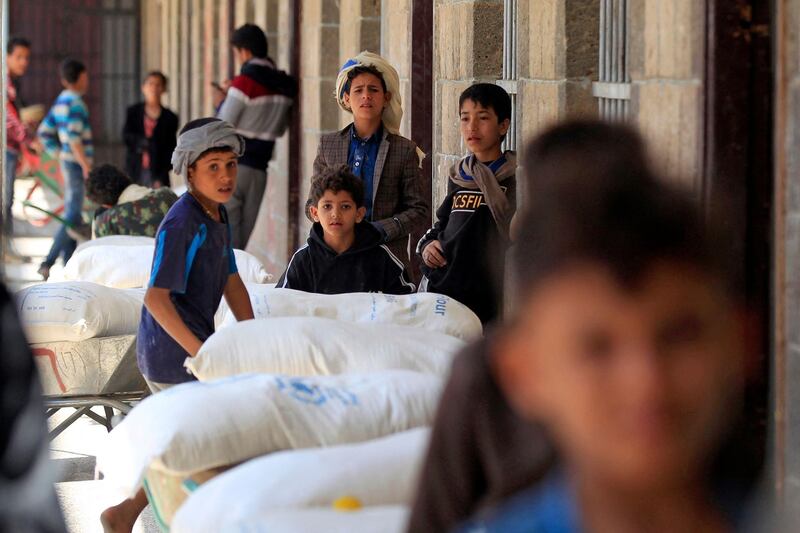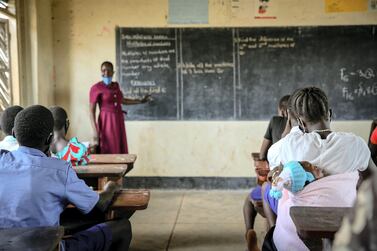MPs are trying to block planned cuts to Britain's foreign aid budget in a move that could embarrass Prime Minister Boris Johnson in the same week he hosts world leaders for the G7 summit.
Up to 30 rebel Conservative Party MPs said they have enough support to defeat the planned cuts and lead to an aid spending increase next year with a vote in the House of Commons. One MP said the cuts would "allow extremism a place to flourish".
Former prime minister Theresa May, former foreign secretary Jeremy Hunt and former Brexit secretary David Davis, and the chairs of eight powerful committees, are among the rebels.
The vote is planned to take place next week just as the G7 summit gets under way in Cornwall.
Tobias Ellwood, defence committee chairman, suggested extremist groups such as Boko Haram would be delighted with the planned cuts.
"Well-directed aid pays for itself – it eases poverty, it educates and builds confidence, it slows migration, it reforms justice and it builds markets for prosperity," he told BBC's Radio 4 Today programme.
"Most critically from my perspective, it denies extremism a space to flourish. When we pull out of programmes – let’s say in Nigeria – Boko Haram will be delighted when that happens. When we remove ourselves in Libya, Russia will be pleased to fill that vacuum. The same with Al Shabab in Somalia."
The rebel MPs tabled an amendment on a separate bill that would force the government to reinstate the legally binding target of spending 0.7 per cent of national income on foreign aid from next year.
The vote, which still needs to be approved by the Speaker of the House of Commons, Lindsay Hoyle, has the potential to inflict Mr Johnson's first legislative defeat since 2019.
This year the government reduced the target to 0.5 per cent – a cut equivalent to almost £4 billion ($5.6 billion) – which it said was needed to restore public finances owing to increased spending on the pandemic.
Safeguarding Minister Victoria Atkins said on Thursday the cuts were necessary because the pandemic had come at a “huge cost to our economy”.
“We’ve had to make some very, very difficult decisions but the prime minister has been clear this is a temporary measure,” she told Sky News.
The reduction in spending led to UK aid to Yemen being cut from £197m pledged in 2020 to £87m this year.
Funding for the Global Polio Eradication Initiative was reduced from £100m to £5m, while education funding for girls was cut by 40 per cent on average over the previous four years.
The UN Population Fund said the UK planned to cut family planning aid from £154 million to £23m this year.
Meanwhile, Save the Children said the cuts undermined Britain's global leadership at a time the country is trying to project its influence in the world.
"This is really damaging and actually undermines their global leadership at this time, because they're saying they want to really step up on girls' education and drive this globally. But at the same time they're also cutting their budgets to girls' education [and] they're also cutting their budget for family planning, and nutrition ... and removing critical services that children need to get them to be prosperous, to have healthy lives to learn, and be happy," Emma Wagner, a senior education policy adviser at Save the Children, told The National.
UN Secretary- General Antonio Guterres previously described the cuts as a "death sentence".
"Millions of Yemeni children, women and men desperately need aid to live," he said.
Former international development secretary Andrew Mitchell, who is leading the Tory rebellion, urged ministers to reconsider the move.
“The cuts are now having a devastating impact on the ground and are leading to unnecessary loss of life,” he said.
“We urge the government to think again, or we shall be asking parliament to reaffirm the law as it stands so as to oblige the government to meet its legal commitment, keep its very clear pledge to British voters and uphold Britain’s promise to the rest of the world.”







